October 7 stands as one of history’s most eventful days, witnessing the rise and fall of empires, groundbreaking discoveries, and moments that shaped our modern world across centuries of human achievement.

Politics and Government Events on October 7
1949 – Communist German Democratic Republic Established
The Soviet Union created East Germany as a communist satellite state, formally establishing the German Democratic Republic. This political division solidified the Cold War partition of Germany into competing ideological spheres.
The new state implemented socialist policies under Soviet guidance, creating a stark contrast with West Germany. This division would persist for four decades, symbolizing the broader East-West conflict that defined post-war Europe.
1958 – Pakistani Military Coup Begins Extended Army Rule
General Ayub Khan seized power in Pakistan through a bloodless coup, overthrowing the civilian government. The military takeover promised to restore order and eliminate corruption in the young nation’s political system.
This coup inaugurated decades of military dominance in Pakistani politics, setting a precedent for future army interventions. The event fundamentally altered Pakistan’s democratic trajectory and civilian-military balance.
1963 – President Kennedy Signs Nuclear Test Ban Treaty
President John F. Kennedy formally ratified the Partial Nuclear Test Ban Treaty, marking a significant step toward nuclear arms control. The treaty prohibited nuclear weapons testing in the atmosphere, underwater, and in outer space.
This landmark agreement represented the first major Cold War arms control success between superpowers. Kennedy’s signature helped reduce radioactive fallout and opened pathways for future disarmament negotiations.
1977 – Fourth Soviet Constitution Adopted
The Soviet Union adopted its fourth and final constitution under Leonid Brezhnev’s leadership, codifying the state’s socialist principles. The document enshrined the Communist Party’s leading role while guaranteeing citizens various social and economic rights.
This constitution would govern Soviet society until the empire’s collapse in 1991, representing the ideological pinnacle of Soviet legal doctrine. The document reflected the regime’s confidence in its permanent socialist transformation.
1924 – Andreas Michalakopoulos Becomes Greek Prime Minister
Andreas Michalakopoulos assumed leadership of Greece’s government during a period of political instability following the Asia Minor Catastrophe. His brief tenure reflected the turbulent nature of Greek politics in the interwar period.
The appointment came amid ongoing debates over Greece’s future direction and foreign policy orientation. Michalakopoulos represented liberal political forces seeking to modernize the country’s institutions and economy.
Military and Naval History on October 7
2001 – U.S. Invasion of Afghanistan Begins
American forces launched Operation Enduring Freedom with airstrikes and covert operations against Taliban and Al-Qaeda targets in Afghanistan. The invasion marked America’s military response to the September 11 terrorist attacks.
This military action initiated what became America’s longest war, lasting two decades and involving multiple coalition partners. The invasion fundamentally reshaped Middle Eastern geopolitics and American foreign policy priorities.
1940 – McCollum Memo Proposes War Strategy
Lieutenant Commander Arthur McCollum presented a controversial strategic memo proposing actions to provoke Japanese attacks on American forces. The document outlined eight specific steps to bring the United States into the European war.
The memo reflected growing American military concerns about Axis expansion and the need for public support for war. This strategic thinking influenced American policy decisions leading up to Pearl Harbor.
1944 – Sonderkommando Revolt at Auschwitz
Prisoners at Auschwitz concentration camp staged a desperate uprising, successfully destroying Crematorium IV with smuggled explosives. The revolt demonstrated extraordinary courage under the most horrific circumstances imaginable.
Though ultimately unsuccessful, the rebellion represented significant resistance against Nazi genocide operations. The prisoners’ sacrifice highlighted the human capacity for defiance even in history’s darkest moments.
1985 – Palestine Liberation Front Hijacks Achille Lauro
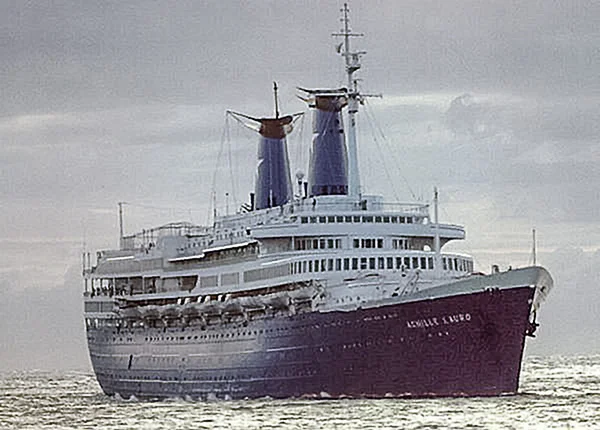
Four Palestinian militants seized control of the Italian cruise ship MS Achille Lauro off Egypt’s coast, taking hundreds of passengers hostage. The hijacking drew international attention to Palestinian grievances and maritime security vulnerabilities.
The incident escalated into a major diplomatic crisis involving multiple nations and highlighted terrorism’s evolving tactics. The hijackers’ demands and the international response shaped future counter-terrorism policies.
Science and Discovery Milestones on October 7
1959 – Luna 3 Photographs Moon’s Far Side

The Soviet Luna 3 spacecraft transmitted humanity’s first photographs of the Moon’s far side, revealing previously unseen lunar terrain. This achievement represented a major breakthrough in space exploration and lunar science.
The images revolutionized understanding of lunar geology and surface features, showing a dramatically different landscape from Earth’s familiar view. This scientific triumph demonstrated the Soviet Union’s technological capabilities during the Space Race.
1958 – Project Mercury Receives Official Name
NASA officially renamed America’s crewed spaceflight program as Project Mercury, establishing the framework for human space exploration. The project aimed to put American astronauts into orbit and return them safely to Earth.
This naming marked a crucial step in America’s response to Soviet space achievements and the beginning of systematic human spaceflight development. Project Mercury would produce America’s first astronauts and orbital missions.
2008 – Asteroid 2008 TC3 Impacts Earth

Scientists successfully detected and tracked asteroid 2008 TC3 before its impact in Sudan, marking the first time an asteroid collision was predicted. The nineteen-hour advance warning demonstrated significant improvements in near-Earth object detection capabilities.
This breakthrough provided valuable data about asteroid composition and atmospheric entry dynamics. The successful prediction enhanced confidence in planetary defense systems and space surveillance technologies.
1929 – Photius II Becomes Ecumenical Patriarch
The Orthodox Church elevated Photius II to the position of Ecumenical Patriarch of Constantinople, continuing the ancient religious leadership tradition. His appointment came during a period of significant political upheaval in Turkey.
The patriarch’s role remained crucial for Orthodox Christians worldwide despite the changed political circumstances following the Ottoman Empire’s collapse. This ecclesiastical leadership provided continuity for millions of Orthodox believers.
Cultural and Arts Events on October 7
1996 – Fox News Channel Launches
Fox News Channel began broadcasting, introducing a new voice in American television journalism with its distinctive editorial approach. The network promised “fair and balanced” coverage while offering conservative perspectives on current events.
The channel’s launch significantly altered the American media landscape, intensifying competition among cable news networks. Fox News quickly gained substantial viewership and influenced political discourse throughout the country.
1959 – Mario Lanza Dies

American tenor Mario Lanza died at age 38, ending a brief but brilliant career that brought opera to mainstream audiences. His powerful voice and Hollywood films made classical music accessible to millions worldwide.
Lanza’s death shocked the entertainment world and deprived opera of one of its most charismatic popularizers. His recordings and films continued influencing singers and introducing new generations to operatic traditions.
1949 – Christy Mathewson Dies
Baseball legend Christy Mathewson died from tuberculosis contracted during World War I chemical weapons exposure. The Hall of Fame pitcher was one of baseball’s first true superstars and a gentleman athlete.
Mathewson’s death marked the end of an era in American baseball, representing the sport’s transition from its early amateur roots. His sportsmanship and skill set standards for professional athletics that endure today.
1963 – Radclyffe Hall Dies

British author Radclyffe Hall died, leaving behind groundbreaking literary works that challenged social conventions about sexuality and gender. Her novel “The Well of Loneliness” became a landmark in LGBTQ+ literature despite widespread censorship.
Hall’s death ended a controversial career that pushed boundaries in both literature and social advocacy. Her works provided representation for marginalized communities and influenced subsequent generations of writers.
Religious and Social Events on October 7
1950 – Mother Teresa Establishes Missionaries of Charity

Mother Teresa founded the Missionaries of Charity in Calcutta, beginning her legendary work with the poorest of the poor. The organization dedicated itself to serving dying destitutes, abandoned children, and society’s most vulnerable members.
This religious order grew from humble beginnings to become a global humanitarian force, operating in dozens of countries. Mother Teresa’s compassionate mission would eventually earn her the Nobel Peace Prize and sainthood.
1987 – Sikh Nationalists Declare Khalistan Independence
Sikh nationalists proclaimed the independent state of Khalistan, seeking to establish a separate homeland for the Sikh community. The declaration reflected growing tensions between Sikh separatists and the Indian government.
Though not internationally recognized, the declaration intensified the ongoing conflict in Punjab and highlighted ethnic and religious tensions within India. The movement continued influencing regional politics and community identity for years.
1919 – Alfred Deakin Dies

Australian statesman Alfred Deakin died after serving as the nation’s second Prime Minister and helping shape the new federation. His political career spanned the crucial transition from colonial status to independent nationhood.
Deakin’s death marked the loss of one of Australia’s founding fathers and most skilled parliamentarians. His vision for Australian democracy and social policy influenced the nation’s development for generations.
1998 – Matthew Shepard Found Brutally Beaten

University of Wyoming student Matthew Shepard was discovered tied to a fence after a savage hate crime attack in Laramie. The 21-year-old had been targeted because of his sexual orientation in an act of shocking brutality.
Shepard’s discovery sparked nationwide outrage and became a catalyst for hate crime legislation and LGBTQ+ rights activism. His death five days later transformed him into a symbol of the fight against homophobic violence.
Business and Economic Events on October 7
1912 – Helsinki Stock Exchange Opens

The Helsinki Stock Exchange conducted its first transaction, establishing Finland’s organized securities market. This milestone marked the country’s integration into international financial systems and economic modernization.
The exchange’s opening reflected Finland’s growing independence from Russian control and its emergence as a modern European economy. This financial infrastructure supported the nation’s industrial development and capital formation.
1913 – Ford Introduces Moving Assembly Line
Ford Motor Company revolutionized manufacturing by implementing the first moving vehicle assembly line at its Highland Park plant. This innovation dramatically reduced production time and costs while increasing efficiency.
The assembly line transformed not only automobile manufacturing but industrial production worldwide, ushering in the age of mass production. Ford’s breakthrough enabled affordable cars for ordinary Americans and reshaped global manufacturing practices.
1919 – KLM Founded as World’s Oldest Airline
KLM Royal Dutch Airlines was established, becoming the world’s oldest airline still operating under its original name. The company’s founding marked the beginning of commercial aviation’s systematic development in Europe.
KLM’s establishment demonstrated the Netherlands’ commitment to pioneering aviation technology and international connectivity. The airline’s longevity reflects successful adaptation to changing transportation needs and technological advances.
1951 – Anton Philips Dies
Dutch businessman Anton Philips died after co-founding the electronics giant Philips with his brother Gerard. His entrepreneurial vision transformed a small light bulb company into a global technology leader.
Philips’ death marked the end of an era for one of Europe’s most successful industrial dynasties. His business innovations and technological investments laid foundations for the modern electronics industry.
Transportation and Infrastructure on October 7
2002 – Space Shuttle Atlantis Launches to ISS

Space Shuttle Atlantis launched on mission STS-112 to continue assembling the International Space Station. The mission delivered crucial structural components and demonstrated ongoing international cooperation in space exploration.
This flight represented continued progress in humanity’s most ambitious space project, involving multiple nations and cutting-edge technology. The mission advanced scientific research capabilities and strengthened international space partnerships.
1961 – Derby Aviation Crash in France
A Douglas Dakota IV operated by Derby Aviation crashed into Canigou mountain in France, killing all 34 passengers and crew. The tragedy highlighted the ongoing dangers of commercial aviation in challenging terrain.
The crash prompted investigations into flight safety procedures and navigation systems in mountainous regions. This accident contributed to improvements in aircraft instrumentation and pilot training protocols.
1978 – Aeroflot Flight 1080 Crashes

Aeroflot Flight 1080 crashed shortly after takeoff from Koltsovo International Airport in Russia, killing 38 people aboard. The accident raised questions about Soviet aviation safety standards and aircraft maintenance procedures.
This crash was part of a troubling pattern of Soviet aviation incidents during the 1970s, highlighting systemic problems within the state airline system. The tragedy prompted internal reviews of safety protocols and training procedures.
1988 – Gray Whales Trapped in Arctic Ice
A hunter discovered three gray whales trapped beneath Arctic ice near Alaska, sparking an unprecedented international rescue effort. The situation captured global attention and demonstrated remarkable cooperation between nations.
The rescue operation involved American, Soviet, and other international resources in a rare moment of Cold War cooperation. The effort highlighted growing environmental consciousness and the power of media to mobilize humanitarian responses.
Sports and Recreation on October 7
1916 – Georgia Tech’s Historic Football Victory
Georgia Tech defeated Cumberland University 222-0 in the most lopsided college football game in American history. The Yellow Jackets scored at will against an overmatched Cumberland team that had discontinued its football program.
This legendary game became part of college football folklore, demonstrating the sport’s capacity for both dominance and humiliation. The score remains unmatched in major college football and symbolizes competitive imbalance in athletics.
1991 – Leo Durocher Dies
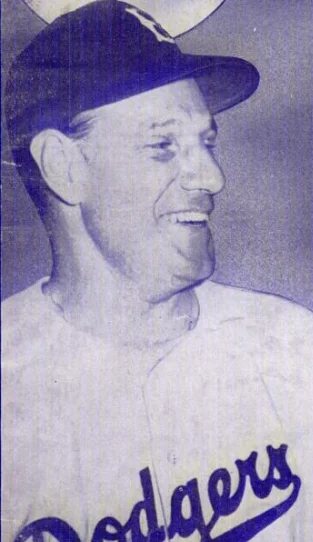
Baseball manager Leo Durocher died after a colorful career leading multiple major league teams to success. Known for his fiery personality and the phrase “Nice guys finish last,” Durocher embodied competitive intensity.
Durocher’s death marked the end of an era in baseball management, representing the sport’s transition from its rougher early days. His tactical innovations and psychological approach influenced generations of managers and players.
1995 – Harry Gallatin Dies

Basketball player and coach Harry Gallatin died after a distinguished career in the NBA and college basketball. “The Horse” was known for his rebounding prowess and fundamental approach to the game.
Gallatin’s death represented the passing of basketball’s early professional era, when the sport was developing its modern identity. His dedication to fundamentals and team play influenced coaching philosophies nationwide.
2015 – Julen Goikoetxea Dies

Spanish cyclist Julen Goikoetxea died in a training accident, shocking the international cycling community. The young rider represented the new generation of Spanish cyclists following in the footsteps of national heroes.
Goikoetxea’s death highlighted the dangers inherent in professional cycling and the dedication required to compete at elite levels. His loss was mourned throughout the cycling world and Spanish sports community.
Notable Births on October 7
1931 – Desmond Tutu Born

South African archbishop Desmond Tutu was born in Klerksdorp, beginning a life dedicated to fighting apartheid and promoting human rights. His childhood in segregated South Africa shaped his understanding of injustice and inequality.
Tutu would become one of the world’s most recognized moral voices, using his religious platform to challenge oppression. His advocacy for reconciliation and human dignity earned him the Nobel Peace Prize and global admiration.
1952 – Vladimir Putin Born

Russian leader Vladimir Putin was born in Leningrad, beginning a journey that would take him to the pinnacle of Russian power. His early life in post-war Soviet Union influenced his worldview and political philosophy.
Putin would become one of the most significant political figures of the 21st century, reshaping Russian domestic and foreign policy. His presidency fundamentally altered Russia’s relationship with the West and global power dynamics.
1967 – Thom Yorke Born

English musician Thom Yorke was born in Wellingborough, beginning a career that would revolutionize alternative rock music. His distinctive voice and innovative approach to songwriting captured the anxiety of modern life.
Yorke would lead Radiohead to become one of the most influential bands in rock history, pushing creative boundaries and addressing contemporary concerns. His artistic vision influenced countless musicians and redefined rock’s possibilities.
1959 – Simon Cowell Born

English television producer Simon Cowell was born in London, beginning a career that would transform entertainment industry dynamics. His sharp wit and business acumen revolutionized talent competition programming.
Cowell would become one of the most powerful figures in popular music, discovering and developing countless artists through his television shows. His influence reshaped how the public discovers and consumes musical talent.
1967 – Toni Braxton Born

American singer Toni Braxton was born in Severn, Maryland, beginning a career that would establish her as one of R&B’s most distinctive voices. Her early musical training in church choirs developed her exceptional vocal abilities.
Braxton would become a multi-platinum recording artist, winning numerous Grammy Awards and selling millions of albums worldwide. Her sultry voice and emotional delivery influenced contemporary R&B and soul music significantly.
1955 – Yo-Yo Ma Born

French-American cellist Yo-Yo Ma was born in Paris to Chinese parents, beginning a musical journey that would redefine classical music’s boundaries. His multicultural background influenced his approach to musical interpretation and collaboration.
Ma would become one of the world’s most celebrated classical musicians, performing with major orchestras and exploring diverse musical traditions. His commitment to cultural exchange through music earned him international recognition and numerous awards.
Notable Deaths on October 7
2006 – Anna Politkovskaya Dies

Russian journalist Anna Politkovskaya was murdered in Moscow, ending her courageous career investigating human rights abuses and government corruption. Her fearless reporting on the Chechen conflict made her a target of powerful interests.
Politkovskaya’s assassination shocked the international journalism community and highlighted the dangers facing independent reporters in Russia. Her death symbolized the deteriorating state of press freedom under increasingly authoritarian governance.
2009 – Irving Penn Dies
American photographer Irving Penn died after a distinguished career capturing iconic images for fashion magazines and artistic exhibitions. His minimalist approach and technical mastery influenced generations of photographers.
Penn’s death marked the end of an era in photography, representing the transition from film to digital media. His portraits of celebrities, fashion models, and ordinary people revealed the beauty and dignity in human subjects.
2011 – Ramiz Alia Dies

Albanian politician Ramiz Alia died after serving as the country’s last communist leader and first post-communist president. His leadership during Albania’s transition from dictatorship to democracy was crucial but controversial.
Alia’s death closed a significant chapter in Albanian history, representing the end of the communist era and the challenges of democratic transition. His policies helped Albania avoid the violent conflicts that plagued other Balkan nations.
2013 – Patrice Chéreau Dies

French director Patrice Chéreau died after a brilliant career in theater, opera, and film that redefined dramatic interpretation. His innovative staging and psychological depth brought new dimensions to classical works.
Chéreau’s death deprived the arts world of one of its most creative visionaries, whose work bridged traditional and contemporary artistic expression. His influence on European theater and opera continued inspiring directors worldwide.
2020 – Mario Molina Dies

Mexican chemist Mario Molina died after a distinguished scientific career that earned him the Nobel Prize for his work on atmospheric chemistry. His research on ozone depletion fundamentally changed environmental science and policy.
Molina’s death marked the loss of a pioneering scientist whose work directly influenced global environmental protection efforts. His discoveries about chlorofluorocarbons led to international agreements protecting the ozone layer.
Holidays and Observances on October 7
Our Lady of the Rosary

The Catholic Church celebrates the feast of Our Lady of the Rosary, commemorating the Virgin Mary’s intercession and the power of prayer. This devotion emphasizes meditation on the mysteries of Christ’s life through repeated prayers.
The feast originated from the papal commemoration of the Christian naval victory at Lepanto in 1571. Catholics worldwide honor this tradition through special masses, processions, and rosary recitations in churches and homes.
Teachers’ Day in Laos
Laos celebrates Teachers’ Day to honor educators and their crucial role in national development and cultural preservation. Students present flowers and gifts to teachers while communities recognize educational achievements and dedication.
This observance reflects Laotian respect for education and the teaching profession, emphasizing the importance of knowledge transmission. Schools organize special ceremonies highlighting the relationship between teachers and students in Laotian society.
Sergius and Bacchus Feast Day

Eastern Orthodox and Catholic churches commemorate Saints Sergius and Bacchus, Roman soldiers who were martyred for their Christian faith. These saints represent courage in maintaining religious convictions despite persecution and death.
The feast celebrates their witness to Christianity during the Roman Empire’s persecution of believers. Their story inspires contemporary Christians facing religious oppression and demonstrates the power of faith over worldly authority.
